One of the reasons my husband and I accepted a relocation to Germany was so that our young daughter Sequoia would have the opportunity to acquire German as a second language. When we arrived, she was five. Immersing her in German and surrounding her with the culture was of utmost importance to us. Your children acquiring a foreign language can be one of the most valuable byproducts of being an ex-pat, whether your move is temporary or permanent. You can help that process along without instructing them, and without yourself being fluent in the foreign language.
Here are some of the ways I fostered my child’s language acquisition when we arrived in Germany, and how you can do the same for your children. Most of these tips can be applied to helping your child acquire any foreign language.
1. GET OUT ON THE PLAYGROUND!
Take your child to the playground. If you’re at a fast food restaurant or the mall, encourage him to play in the play area. Exposure is paramount. My daughter did not speak back to other children for a while, but she was observing and soaking in the German spoken around her as she played. She was also observing how other children behave in this new-to-her culture. This is one of the first things you can do to immerse your child when you arrive in Germany.
2. JUST SPEAK
We were always attempting to use what little German we picked up as we went along. If you do not know German, you will make mistakes. It’s natural. Germans will appreciate that you’re trying.
Make sure your child sees you trying, and also allowing yourself to make mistakes—then she’ll know it’s okay when she makes mistakes.
3. DON’T CORRECT YOUR CHILD!
This is so important. You don’t want your incessant corrections to make your child self-conscious and less comfortable with expressing himself naturally.
If you are a beginner yourself, even if you are taking lessons, you are learning one type of German while your child might be acquiring a local dialect. You will not innately know those dialect “rules”. If your child is truly making errors, he will self-correct naturally, through interaction with and feedback from native speakers. As you and your child each make errors, just be patient, keep plugging away, and fight the urge to correct!
4. GET A GERMAN BABYSITTER
During the academic year, students of various ages from the local schools spend a few weeks at a time doing their practicum. Education students would come and go at Sequoia’s Kindergarten, and she really took to one teenage girl in particular. I asked the girl to come to the house for two hours once every week, to “babysit” Sequoia, reading and playing exclusively in German. A few weeks later, Sequoia’s teacher mentioned that she suddenly opened up and began speaking. I highly recommend finding a German babysitter as soon as you are settled. Have them come over on a regular basis, to play with and read to your child. Remember: You are not looking for a tutor; just provide your child with an environment that will foster natural acquisition.
5. VISIT LIBRARY READING HOUR
Find out when your local library has reading hours and take your child. Even if she does not understand at first, just hearing the sounds of German coming from a native speaker will be very beneficial to her own accent in the future. There will be illustrations and the reader’s pitch and expressions to help her figure out what is going on.
6. GET SOME BOOKS!
Start simple: There’s nothing wrong with a children’s board book when all of you are just learning. We happened to be just a few months into our time here when Advent calendars came out, so finding a giant Advent calendar filled with tiny German board books behind each door was very exciting. Because the books were for little ones, the vocabulary and syntax were simple.
Then challenge yourself: Walk into a bookstore and look around the children’s books for something interesting—something that you wish you could read. Buy it. Make it your goal to be able to read this book on your own. Don’t go home and look up the words, though. Just put it on a shelf and come back every now and then to see how much of it you can get on your own. We came across “Geschichten vom Klöchen” one day during our first few weeks in Germany. On the cover, a little boy is carrying a giant book to the toilet. Inside, various things are occurring with different animals in the toilet. This presented the perfect goal: Acquire enough German to figure out what the heck was going on in that kid’s bathroom!
7. USE MAGAZINES AND OTHER PRINTED MATERIALS
In an upcoming article, I will explain in depth how I used the magazines with freebies attached in a way that was fun, comfortable, familiar, and beneficial—for both of us.
Menus and restaurant activities, Happy Meal books, pamphlets, and signs are also helpful. Even playing the alphabet game as you’re driving or walking around reminds a child that German isn’t so different. This could be effective for children who are old enough to be intimidated by the language: show them that, aside from the β, which is nothing more than two S’s (Straβe = Strasse), and some dots on top of vowels, German and English look very alike—there’s nothing to be afraid of!
Books and other printed material can help with vocabulary acquisition and familiarizing your child with the language, but they will not help your child make much headway with actually pronouncing German. So even if you’re a stickler for books, you might have to supplement them with other media if your child is not yet immersed in a natural German-speaking environment.
8. PLAY WITH TIPTOI ELECTRONIC BOOKS AND GAMES
There are quite a few of these books, games, and puzzles for a wide age range of both boys and girls. We started out with a book about farm animals. Depending upon which setting you select, the pen reads the story to you or names objects in the page illustration, as well as performing other activities.
9. WATCH YOUTUBE
Search for German videos. It’s as easy as typing “German” or “Deutsch” in front of your search—perhaps for cartoons. My daughter watched mostly Mickey Mouse Clubhouse (“Micky Maus Wunderhaus”), Tom and Jerry, and Pink Panther. In the German versions, there is more talking in the latter two cartoons than in English versions. Sequoia was familiar with the characters, enjoyed watching them, and soon was watching without realizing the cartoons were in German.
10. WATCH MOVIES
If you are in a position to do so, buy a European DVD player and start watching German movies that your child recognizes. If there’s a movie she’s seen 750 times in English, that’s a good place to start.
It’s also a great experience to see a movie in German. If you’re not quite sure you’re ready to handle it, see it in English first and then go see it German once the family knows what to expect.
11.WATCH GERMAN TV
If you’re in a hotel, turn on German cartoons. If you have German TV access at home, turn it on. There are plenty of German cable channels with children’s programming.
12. LISTEN TO CD’s
CD’s are pretty cheap at the supermarket. You can buy children’s stories and songs, as well as CD’s with full narration of movies with which you and your child might already be familiar.
13. PLAY WITH PHONE/TABLET APPS AND GAMES
Just as in English, there are German game apps for young children, including learning games. (You might have to set up an additional itunes account on your German phone—this will allow you to purchase apps not available in the US.)
Here are a few iPhone apps that Sequoia used when she was five into the beginning of turning six years old:
Lesen Lernen fur Kinder – A dog took her through word games such as matching words, word scrambles, memory, and word searches.
Lernen Lesen 2 – a boy character took her through learning games of increasing difficulty, from matching to spelling.
Das Welt – She clicked on animals which then made animal sounds and spoke the name of the animal in German. There were also puzzles and games to complete.
Prinzessin Lillifee games, including Vorschule. – Vorschule offered preschool games with instructions in German (including a game that taught English words). Games included drawing, matching, and math skills. Instructions were in German, but things were intuitive, so she was completing the tasks set forth in the German instructions without realizing that these German instructions were soaking in.
14. SEND THEM TO GERMAN KINDERGARTEN/SCHOOL
An obvious way to fully immerse your child in German is to send him to school with speakers of German. Play and interaction with children his own age is a natural and very effective way for a child to acquire a second language. Have no fear: your child will pick up German even if he doesn’t speak a word of it on day one.
If some of the teachers know English, it can be easy to let your child fall into a pattern of speaking English with a teacher instead of German. Discourage the teacher from using English with your child.
15. MAKE SURE THEY’RE HAVING FUN!
The key to all of the above is that your child must be having fun. They will not become fluent, accentless speakers of German by sitting in the kitchen with you and some flashcards. They need to get out, be around native speakers, and be immersed in the language—playing, interacting, and losing themselves in the moment. Don’t force it; instead, provide opportunities for a new language to sneak up on them!
To read more about our experiences with the German schools, check out the articles I wrote for Germany, Ja!:
Is German Kindergarten Right For My Child? Part One
Is German Kindergarten Right For My Child? Part Two
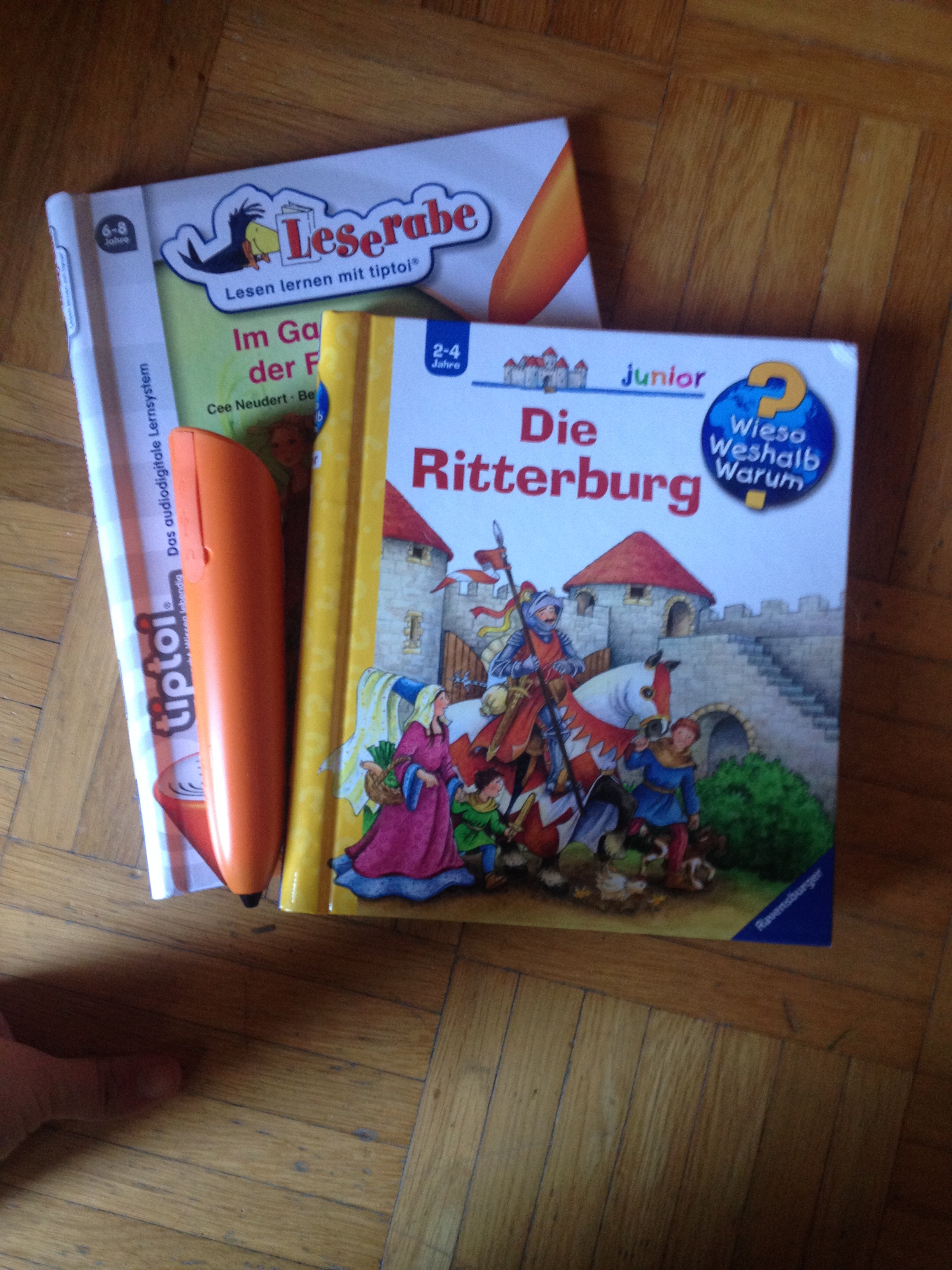


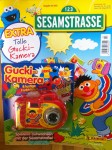
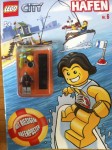


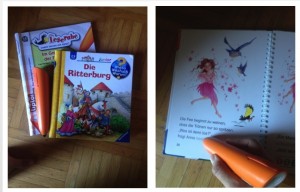
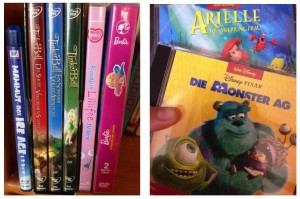

Hi Kari,
Stumbled on your blog while doing some research on Germany. Its looks so helpful, I cant wait to read each article…:) We are considering relocation with our 3 year old daughter to Munich. My husband was offered a job and i have a few questions to ask regarding salary and taxation. If you could be so kind to respond to my email, if would be awesome…:)
Thanks
Rose
Hi, Rose,
I’m afraid I can’t answer anything about salary and taxation. I would suggest you consult with an accountant or a representative of the company that offered your husband a position. Thanks for checking out the site–I am updating articles almost daily right now, so check back soon. I wish you the best if you decide to move here. It’s a great place for a child to grow up!
Kari